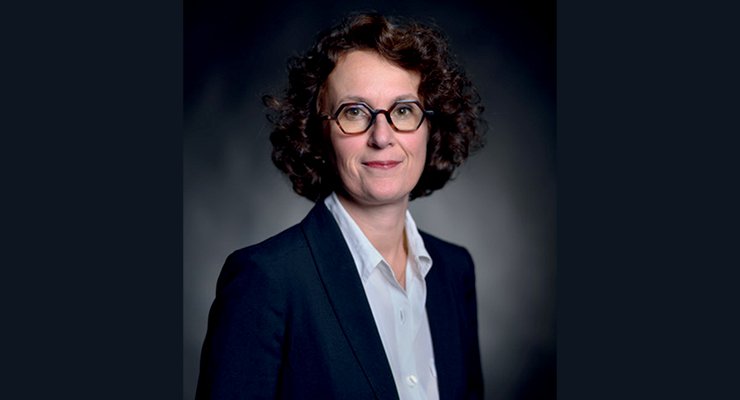LUTECH: a technology transfer company as a “filter for innovative projects”
It was the observation made by the State authorities that the results of public research very rarely led to industrial valorisations or to innovations, the reason being the too wide gap between the two worlds public/private, that led to the creation of the SATTs, an acronym for technology transfer accelerators with an assigned mission to enable maturation of scientific work and results. The SATTs therefore stand at the crossroads of the research and entrepreneurial worlds and, as such, constitute new economic agents that could improve France’s system of research valorisation, notably accelerating research result transfer and their use by industrial sectors.
Site web de la SATT
Context
SATTs can be seen as service purveyors serving the aims of research valorisation for the stakeholders and possible potential clients. The SATTs also avail of financial means to support projects as they mature. The State operator here is the ANR (national research agency).
Their mission, as "filters for innovation and research", is to translate discoveries and skills in the public research establishments into concrete applications that correspond to needs expressed by the corporate world. Their activities relate to lodging of patent claims, to proving of design concepts, to start-up creations, to licensing … The SATTs themselves were set up in the frame work of the Government incentive programme "Investments for the Future" and dispose of a specific fund amounting to 900M euros.
Objectives
The SATT-Lutech was declared a laureate in the first round of calls for projects under the Investments for the Future scheme and specifically is called to intervene in all stages of technology transfer: detection of inventions and analyses of market needs, intellectual property strategies, maturation, (investment in design proving protocols to decrease technological, regulatory and economic risks), accompanying the transfer process to the industrial sector by helping the creation of a start-up or negotiation of operating licenses. The SATT-Lutech can also be associated with companies to elaborate, monitor and manage co-maturation projects.
The scientific potential and excellent international reputation of its stakeholders enables SATT-Lutech to propose a sizeable and varied portfolio of technologies, as follows:
- Health
- ICTs
- Chemistry
- Materials
- Processes
- Engineering and associate services
- Environment and energy
The SATTs also define the relevant intellectual property rights involved and finance maturing projects from technological, manpower and marketing angles, with the objective to lower the risks associated with the venture and to encourage transfer to the industrial sectors. SATT Lutech accompanies research scientists when they desire to transfer their research results, from the invention claim stage to the operating license, or creation of a start-up, in partnerships with corporate incubator structures (e.g., business nurseries).
Project patrons
The SATT Lutech's partners are the University of Paris 6 (Pierre & Marie Curie), the University of Paris 2 (Pantheon-Assas), INSEAD (Institut Européen d'administration des Affaires), Institut Curie, the École nationale supérieure de création industrielle (ENSCI), the Muséum national d'Histoire Naturelle (MNHN) and the CNRS, these institutions representing close to 10 000 research scientists working in the areas of sustainable development, service sectors, living matter technologies and health, computer sciences and associate applications.
The contract signed by the SATT-Lutech and UTC has enabled several project to emerge and progress, notably IDCCM (Integrated Dynamic Cell Cultures in Microsystems), based on work in micro-fluid mechanics and cellular micro-systems run by the UTC-BMBI Laboratory.
The aim of the IDCCM project is to propose a system for in vitro testing of cells (human or animal primary cells, cancerous cells …) to actors in the cosmetics, chemical and pharmaceutical sectors that reproduce the in vivo conditions, thereby offering a way to avoid in vivo animal testing. Not only does the system reduce costs, but also improves validity, simulating blood flow, carrying out real time, in situ analyses enable hg a better level of extrapolation of in vitro/in vivo results.
The Lutech SATT accompanies the project, including issues of intellectual property rights, marketing as well as in possibilities for further technological developments. Lutech financially supports the complementary biological tests needed and the development of a better integrated ICCCM platform.
"We shall be associated soon with new UTC-BMBI projects and we shall certainly move in the direction also of COSTECH research efforts", notes Chantal Vernis, managing director and CEO of the SATT. "UTC has become accustomed to working with industrialists – a fairly rare situation – and this makes our agreement to collaborate a very pleasant affair. I also hope that we shall be able to attract students to present various start-up possibilities. Already two UTC graduates have set up shop on the basis of a project that was matured at the SATT, viz., TEM Project, in the field of musical creation. Students today have a real chance and opportunity here."
Contacts de la recherche à l'UTC
Plaquette des investissements d'avenir à l'UTC



